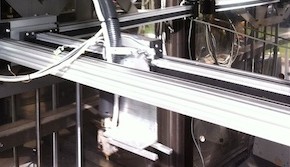Patent Could Cripple the 3D Printing Revolution
on

3D printers allow users to print 3D objects from a digital design. Once the technology hits the mainstream it will likely be as disruptive to manufacturing as file sharing was and is to the music, movie and publishing industry. It will probably be no different for manufacturers of goods. Instead of buying a coffee mug that was designed in Paris, manufactured in Shenzhen and shipped to your place of residence, 3D printing will allow you to download the design of a mug and have your printer produce it for you.
If digital file sharing is any indication of how the 3D printing revolution will unfold, stakeholders will divide into two camps: there’ll be those who embrace the shift to an economy of abundance and build new businesses on it, like Spotify and Bittorrent. And there’ll be those who’ll try to maintain the scarcity model. Either by litigation, policy making or modifying the technology. A patent issued by the U.S. Patent & Trademark Office to Intellectual Ventures on October 9th, squarely falls into the latter category. Patent 8,286,236 is basically a Digital Rights Management (DRM) technology for 3D printers and other manufacturing methods. DRM restricts the use and distribution of copyrighted content by utilizing techniques like encryption or watermarking.


Discussion (0 comments)